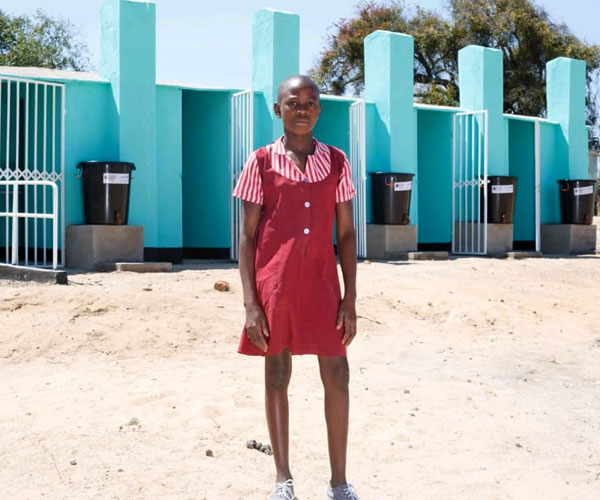Promoting Sanitation through Hygiene Laboratories in Schools
Poor personal hygiene and inadequate sanitation practices among young children leads to communicable diseases. Good health and education are vital components of a child’s early development. Schools, especially in rural areas, can play a pivotal role of improving learners health by implementing sanitation and hygiene management practices and running promotional activities.
Through ZIRP funding from the World Bank, Chikomba DWSSC adopted the Participatory Health and Hygiene Education (PHHE) approach. A structured Hygiene promotion strategy was developed using interactive tools, to facilitate health education and awareness among school children in their School Health Clubs (SHCs). Interactive PHHE training in schools was conducted for a total of 10 schools. Hygiene laboratories have been developed to keep children entertained and interested in Hygiene promotion. Mahusvu and Mashambamuto Primary are two of the schools from ward 17 that won the Best Sanitation awards and have since received support to develop their hygiene labs.
Hygiene labs have been introduced to inspire the innovative potential of school hygiene clubs to keep children and the community engaged in hygiene Promotion though practiced performances of songs, dance, drama, poems, games, art, and photos. The labs enhance children’s participation. Young children are more receptive to new ideas and practices when they can participate and interact with relevant media. The hygiene lab allows them to practise correct and proper use of toilets, running water and hand sanitisers for example. Models of up-gradable ventilated latrines and garbage trucks used in urban areas for waste management are also displayed.
Having adopted good practices from an early age, they are likely to continue so as adults, enabling reduction of water and sanitation related diseases. In addition, children can be catalysts for positive change in their household and community.
The labs are equipped with hygiene equipment models and abstract art. A solar powered television has been installed to provide a more visual lens to issues that are taught during theory sessions. Lessons are extracted from the UNICEF School Health Coordinators Training manual which includes personal, household, school and community hygiene and Sanitation.

